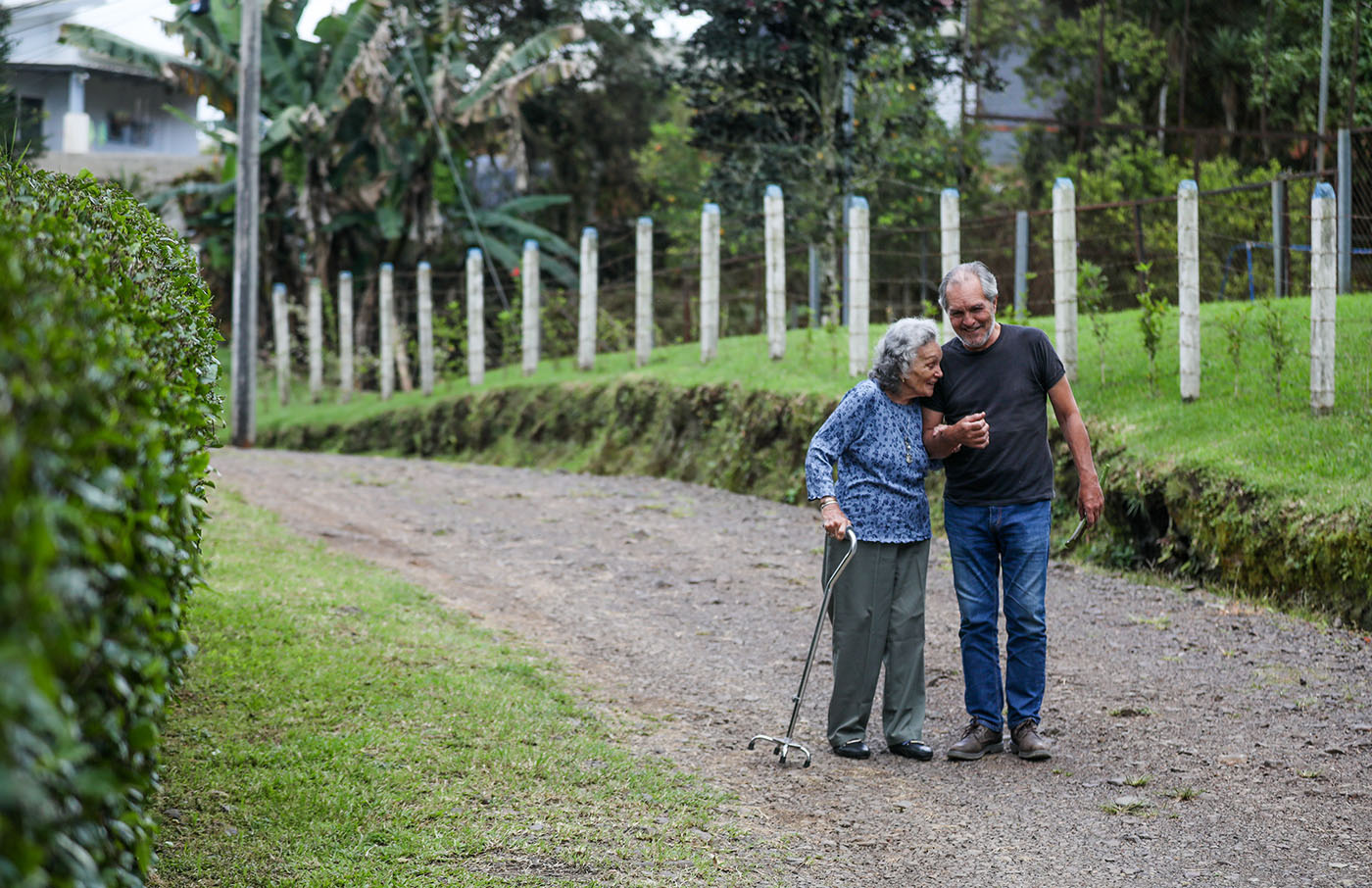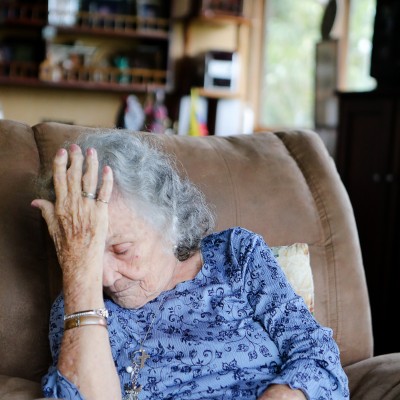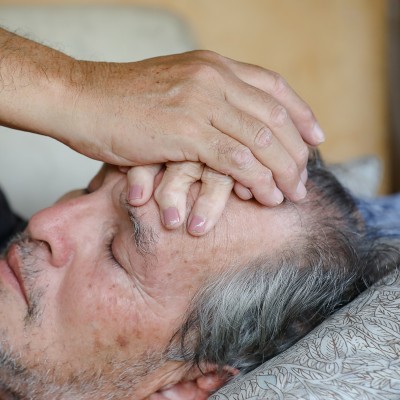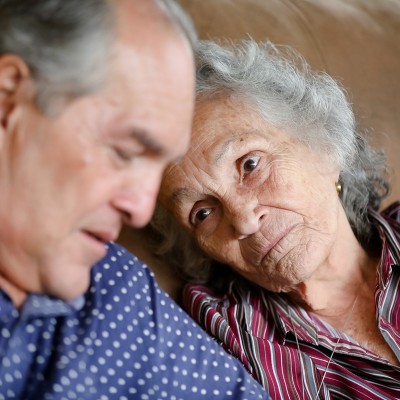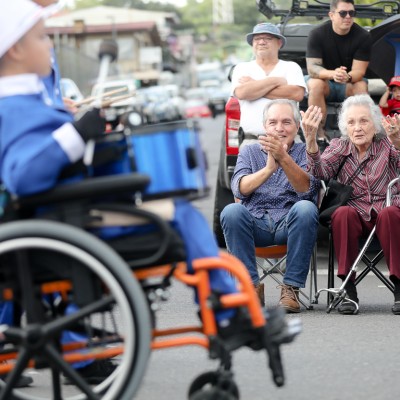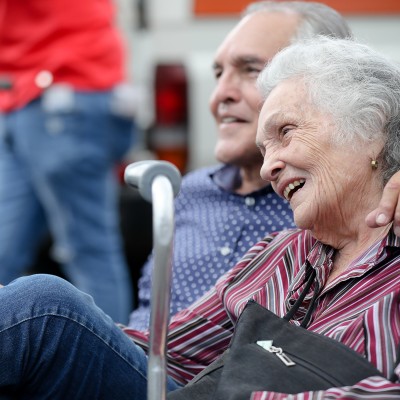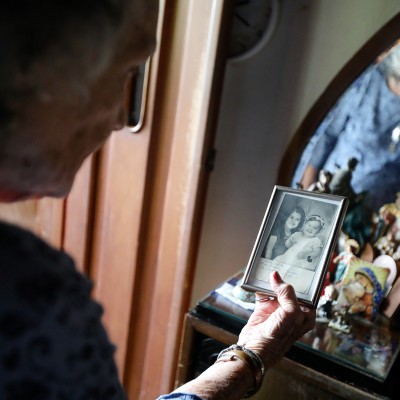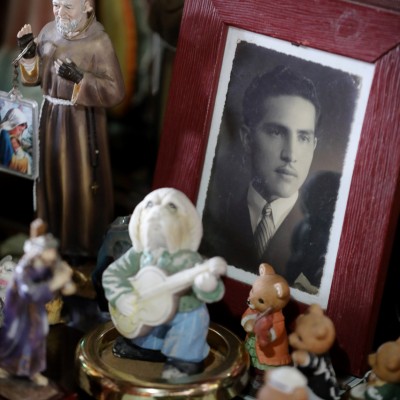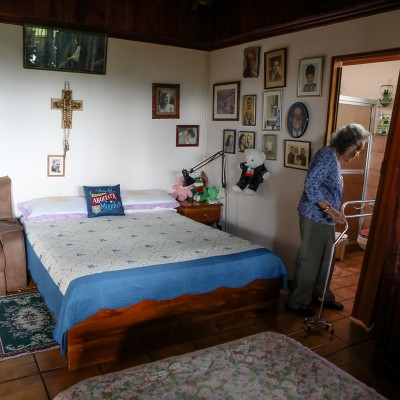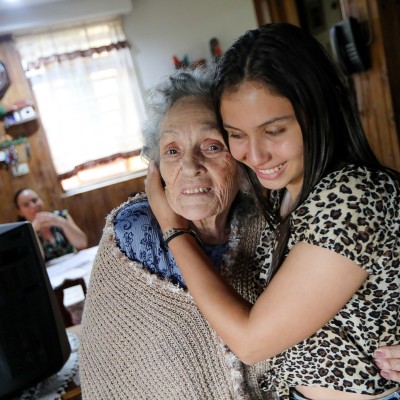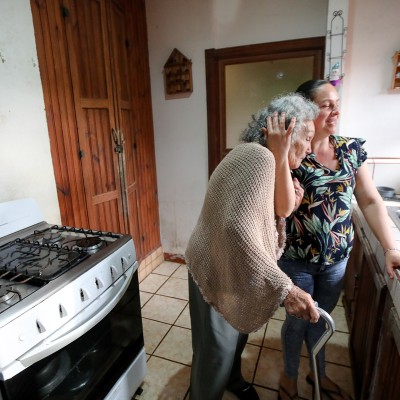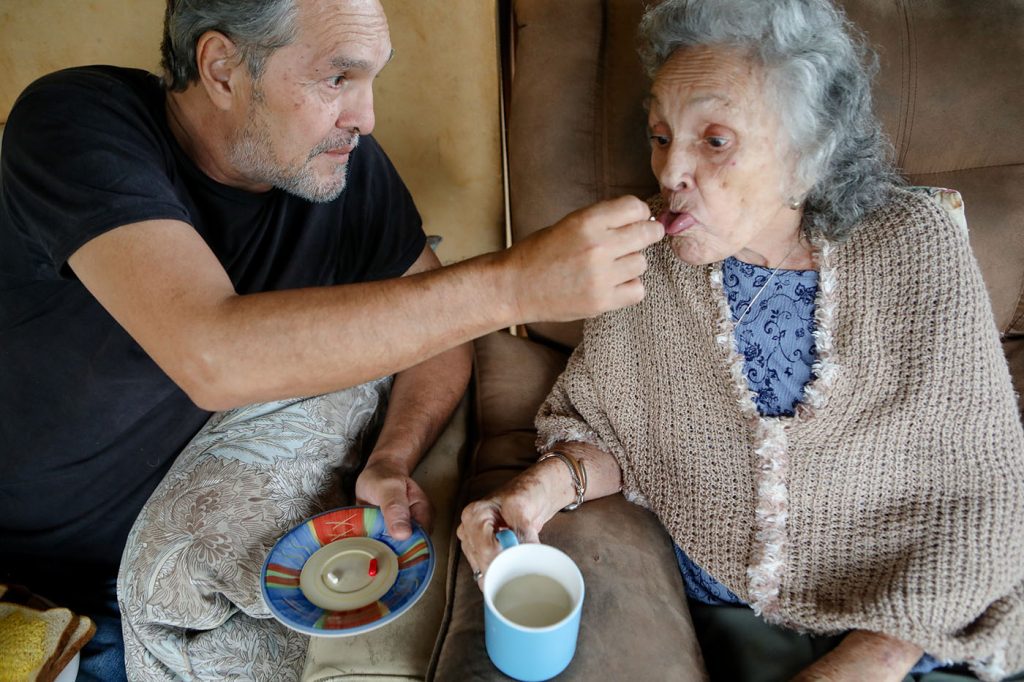
Doña María Isabel is 85 years old. Or 70. Or “I’m past 90.” Or she just says, “Wow, I’m too old to count.” The answer depends on her level of lucidity at the moment she’s asked. Four years ago, her diagnosis of Alzheimer’s was devastating for the Rojas family. They’d already seen their patriarch, María Isabel’s husband Edgar, die at the age of 90 after the same disease robbed him of all the memories. Since then, María Isabel’s mental deterioration has been gradual. However, it is accelerating.
María Isabel Antillón is, in fact, 85. She built a life with Edgar Rojas in Puriscal, a mountain town about an hour southwest of San José; they had five children of their own and two foster children. Don Edgar died eight years ago. When he began to show signs of dementia and Alzheimer’s, his eldest son, Gustavo Rojas Antillón, began a stay at his parents’ house that kept on getting extended until he finally moved in with them. When María Isabel began to show signs of the same deterioration, Gustavo knew that he would not be able to leave.
Although it is true that it is more common for the work of caring for an elderly person to fall on the women of a family, in this case, it fell on Gustavo. Why? “I am the eldest, and the one who should decide,” he says. “Besides, since I’m the only one of my siblings who doesn’t have an established family with a wife and children who live with me, let’s say they decided that ‘it was up to me.’”
His singlehood is relatively new. Gustavo has four daughters and is twice-divorced. He says that the second time around, this was because he had to choose between his wife and taking care of his father.
Gustavo is the oldest of five, all of whom have made their lives in Puriscal as well. He says that one of the remaining four, his brother Edgar, did help with María Isabel’s care, but he died from COVID-19.
To the question he reads in my mind, Gustavo replies, “Why not put her in a facility? Because I can’t imagine that she would ever do that to me in a moment of crisis or weakness. I just can’t imagine her looking for someplace to put me because she couldn’t take care of me.”
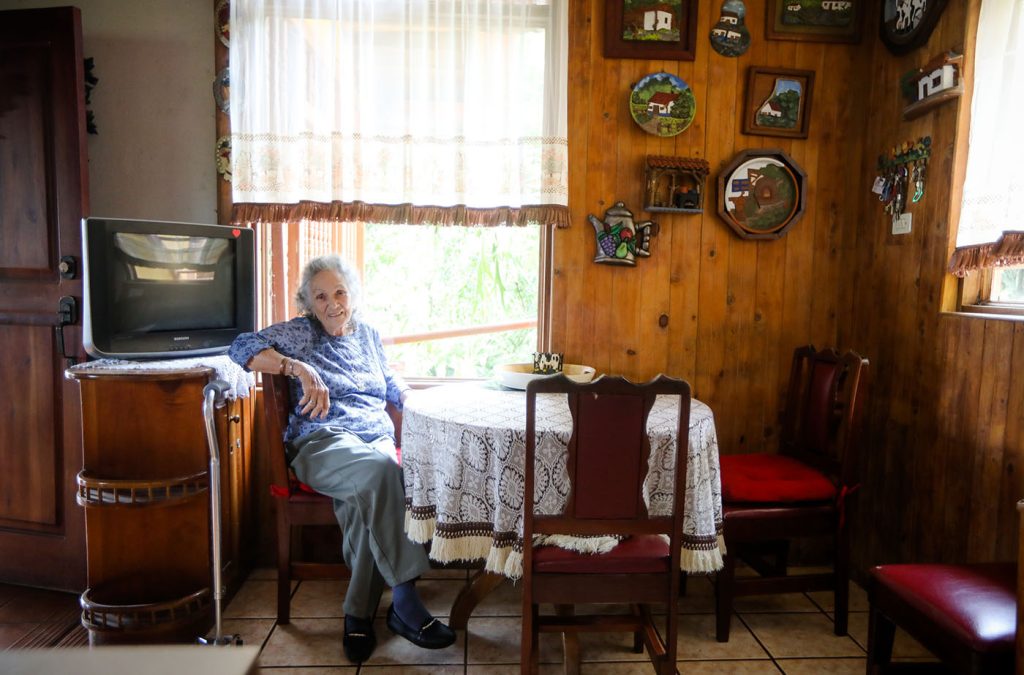
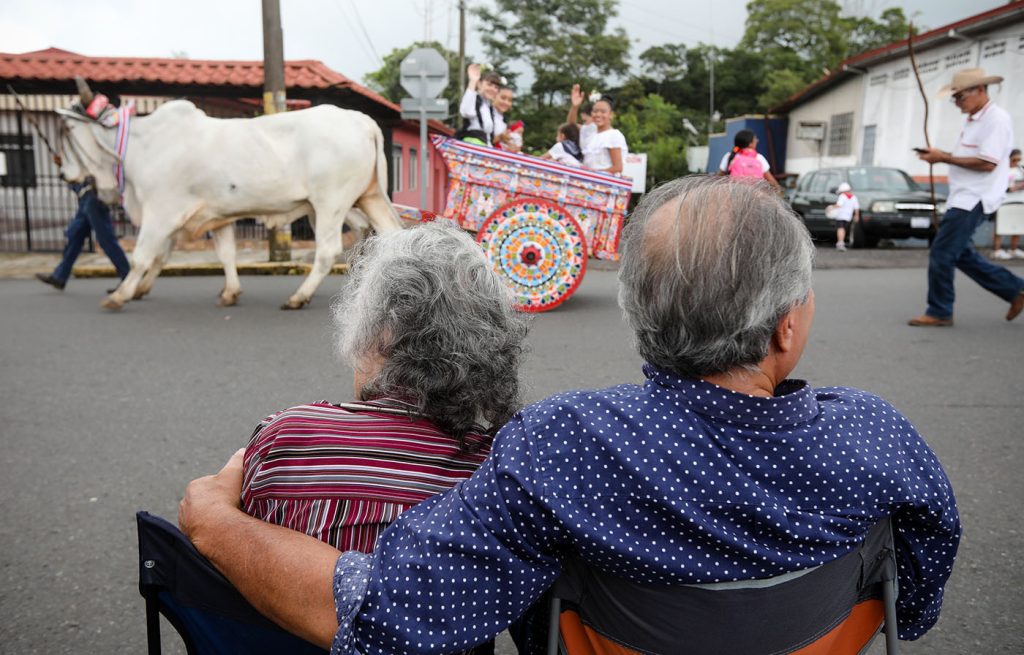
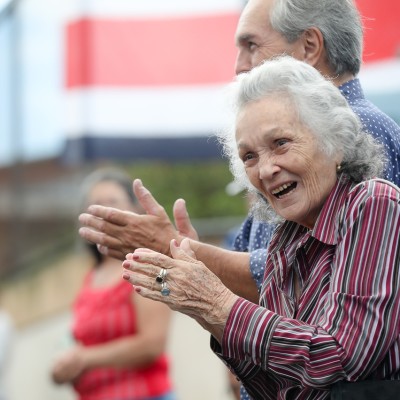
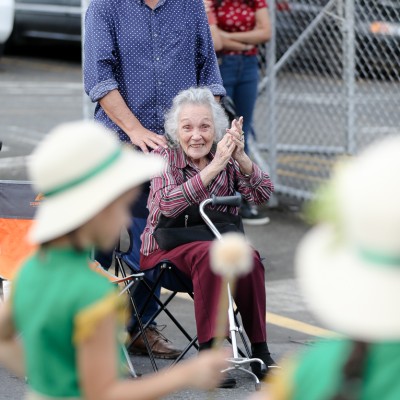
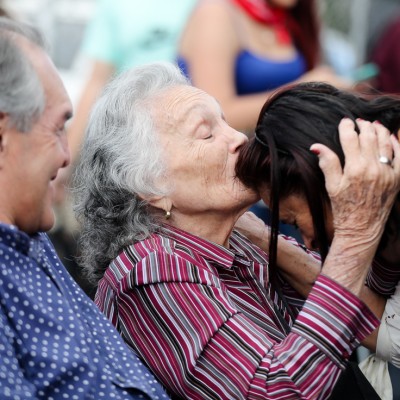
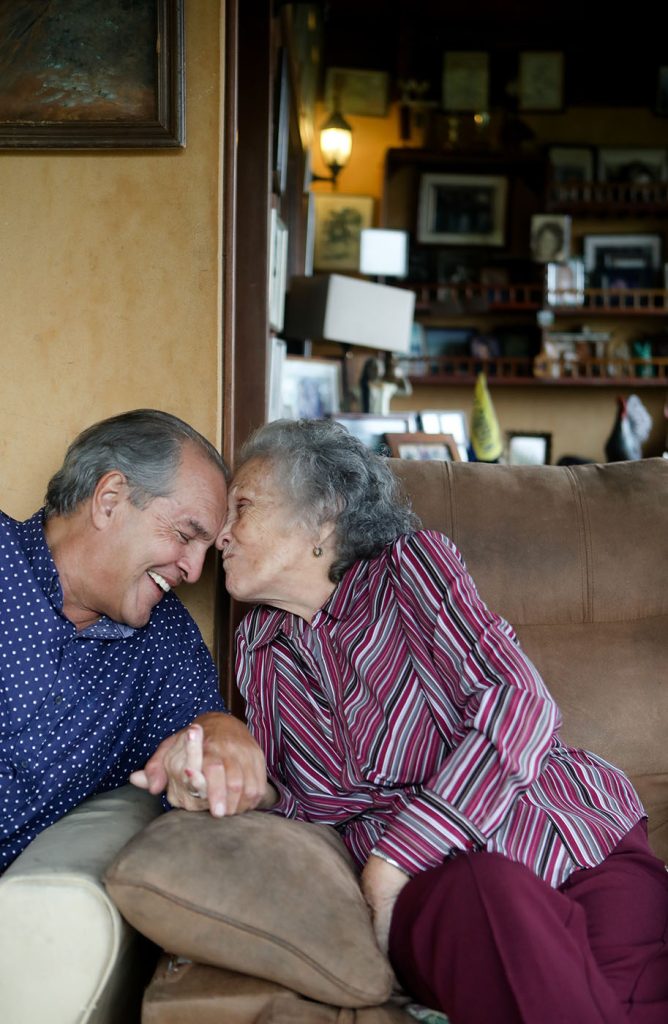
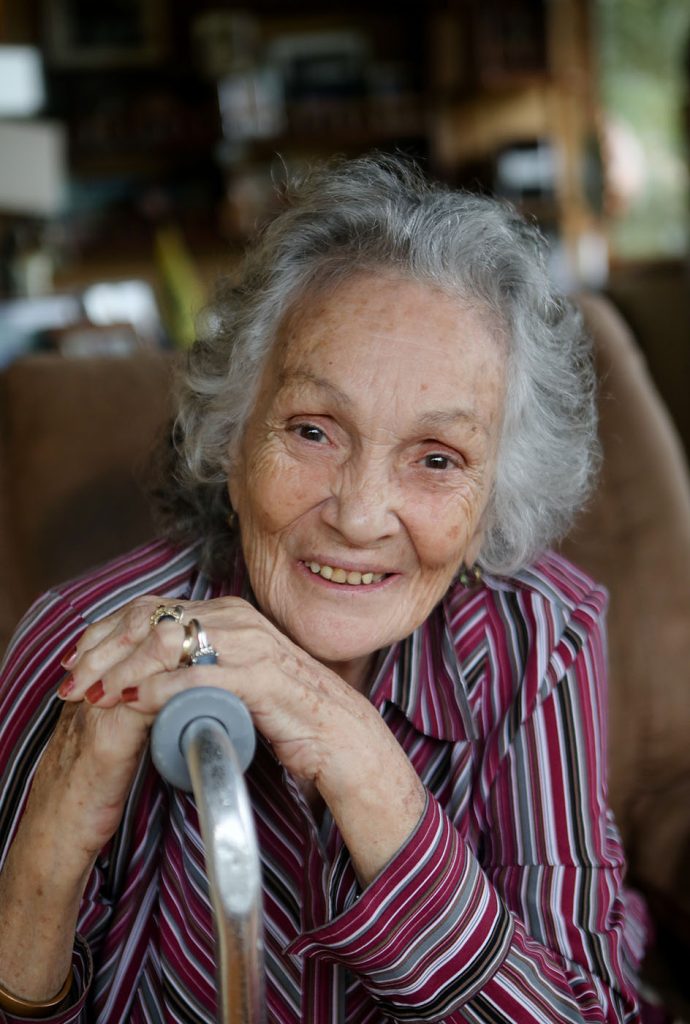
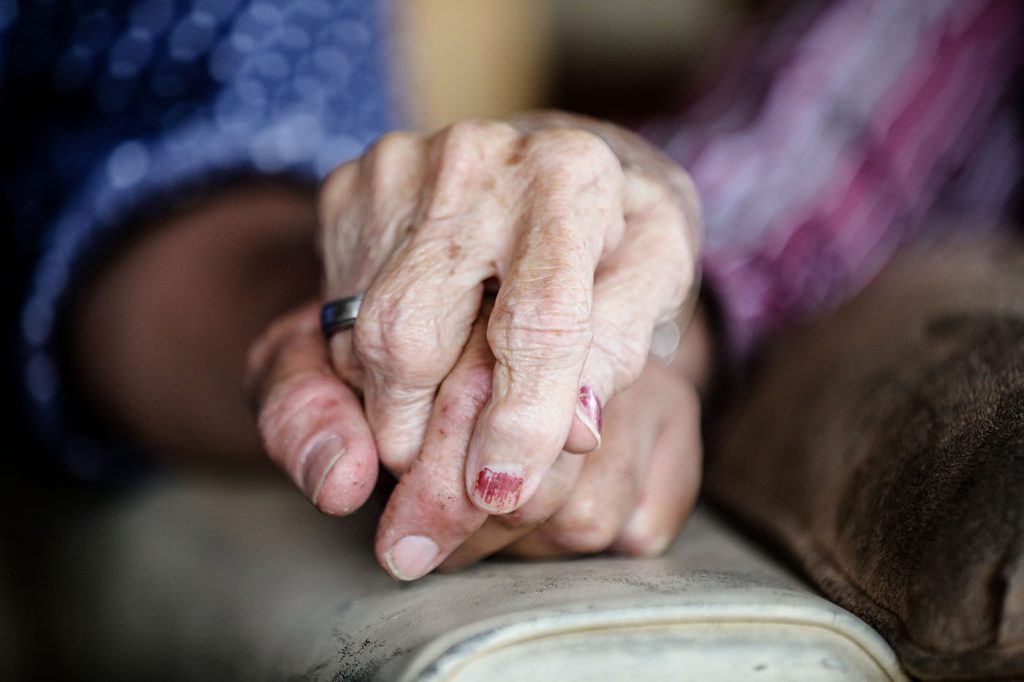
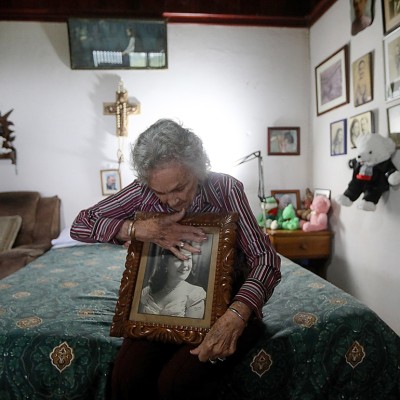
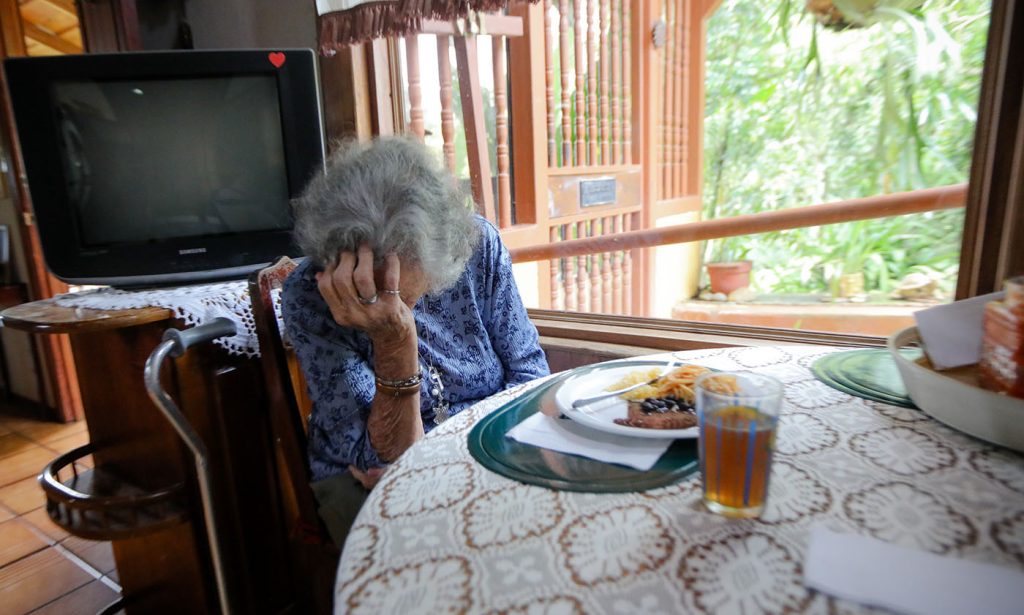
Gustavo is a lawyer by profession and a renowned actor. Every morning, Costa Ricans can hear him narrating historical data on the “Panorama” radio station. When he has to go to San José to work, he knows that he cannot leave María Isabel alone because she gets lost easily. The danger that she will wander out of the house, not knowing who she is or where she is going, is real. When Gustavo tells her that he is going out, María Isabel’s eyes turn fearful. She asks again and again who she is going to stay with, because although her memory fails her, she understands that she cannot stay alone.
Roxana Meza Chaves has lived with the family for a year. Her job includes taking care of the housework, accompanying María Isabel when Gustavo is not there, and taking advantage of her few free moments to continue her studies in patient care. She has two children, Luis Ángel, 12, and Angie, 17, who not only help support María Isabel, but have also grown so fond of her that they now call her Tita, or Grandma.
A person like María Isabel requires three full shifts of care, 24 hours a day. Gustavo is very aware that Roxana does much more than what is asked of her: “I could never repay her for everything she does for mom. And she does it lovingly.” For her part, Roxana says she’s grateful to Gustavo for opening the doors of his home to her and her children.
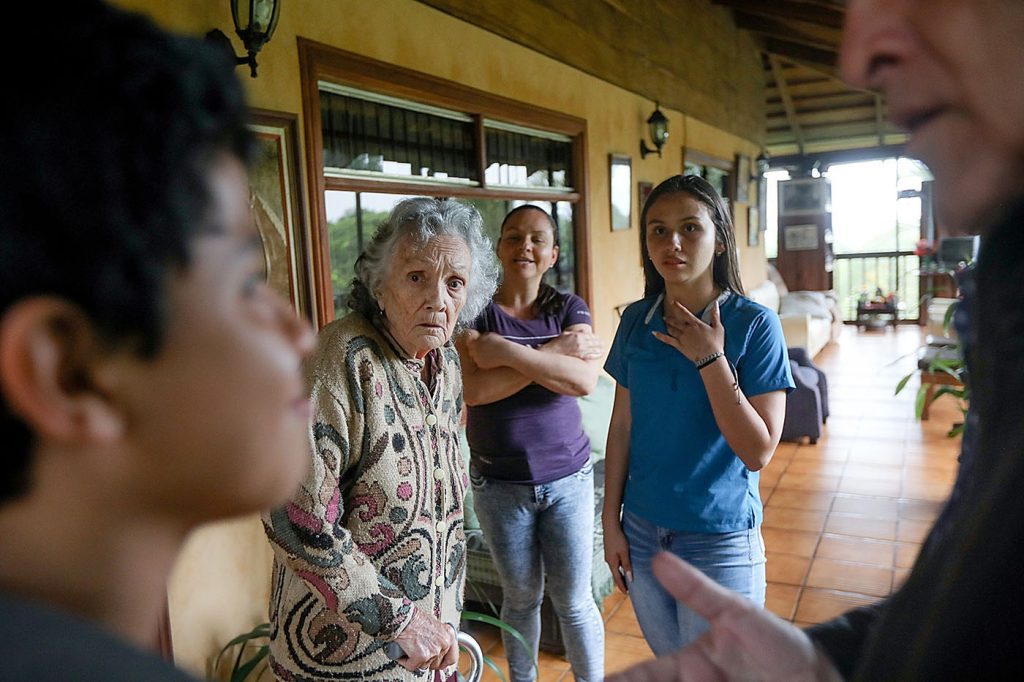
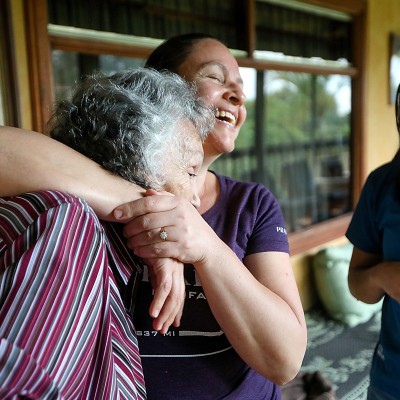
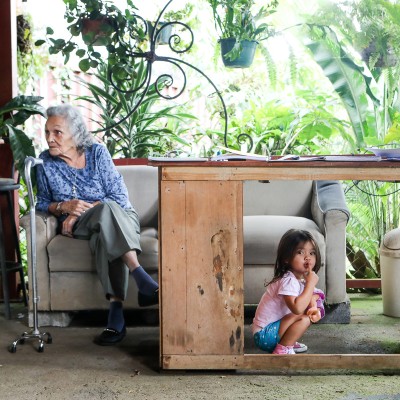
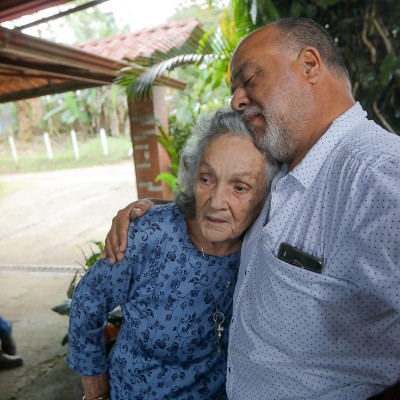
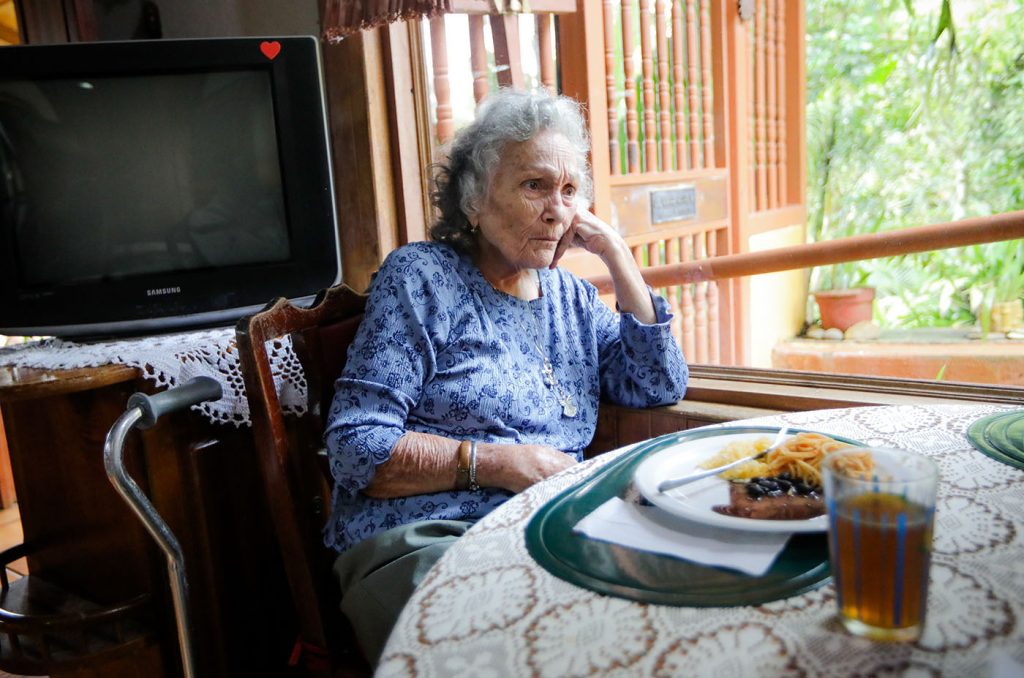
Talking with María Isabel is fascinating. If you weren’t aware of her condition, you wouldn’t immediately guess that she’s afflicted by such a cruel disease—but after being with her for a while, you begin to notice that there is something wrong. You have the feeling that there are huge gaps that she fills with memories mixed with stories that are the product of a great imagination. Her friendliness and her charm are overwhelming: she loves to tell old stories about her children and the mischief they did, how beautiful she was in her youth, and how much she thanks God for his kindness to her family.
“I worked with these hands, this head, and this fatigue. But I gave everything to my children,” says María Isabel proudly. “I owe everything to my God, who is the greatest thing I have. I have my God and He loves me,” she says as she crosses himself over and over again to show her deep faith.
María Isabel’s mood is constantly changing. Just as she is happy when she tells her stories, she is furious when they bring her food. She always insists that she has already eaten, that she is not hungry, and that she does not want to eat more. Medicine time is just as exhausting. As soon as she sees the pills approaching, she changes her expression. Her brow furrows. She throws three insults at the plate full of pills and sticks out her tongue in rejection.
The strong character that characterized her in her youth transcends the barrier of her illness, and her fury is also provoked when she thinks that her belongings are being stolen. She is constantly vigilant about protecting her jewelry and her handbags. She hides them, and sometimes does it so well that no one can find them. Today it’s her rings. They’ve been looking for them for three days, and she insists that they were stolen; fortunately, it was not necessary to “go to San José to look for them,” as she has insisted in the past, because they’re finally discovered, hidden under a photo frame.
Her favorite place is the armchair at the end of the corridor where she sits looking at the sea of trees that surrounds her house in Puriscal. Next to her is a sofa for the caregiver on duty—usually Gustavo, who lies down while his mother caresses his hair as if he were a baby. It is common to find them singing together. Curiously, music and lyrics are not lost in the mists of forgetting, and they come to life every time they are sung. With tired eyes and an anguished expression, Gustavo listens to his mother’s stories; she often confuses him with his other siblings, or with his father. As she sings and chats nonstop, he pulls out his cell phone and tries to get some work done. With the skill of a circus performer, he juggles everything his life demands of him and more.
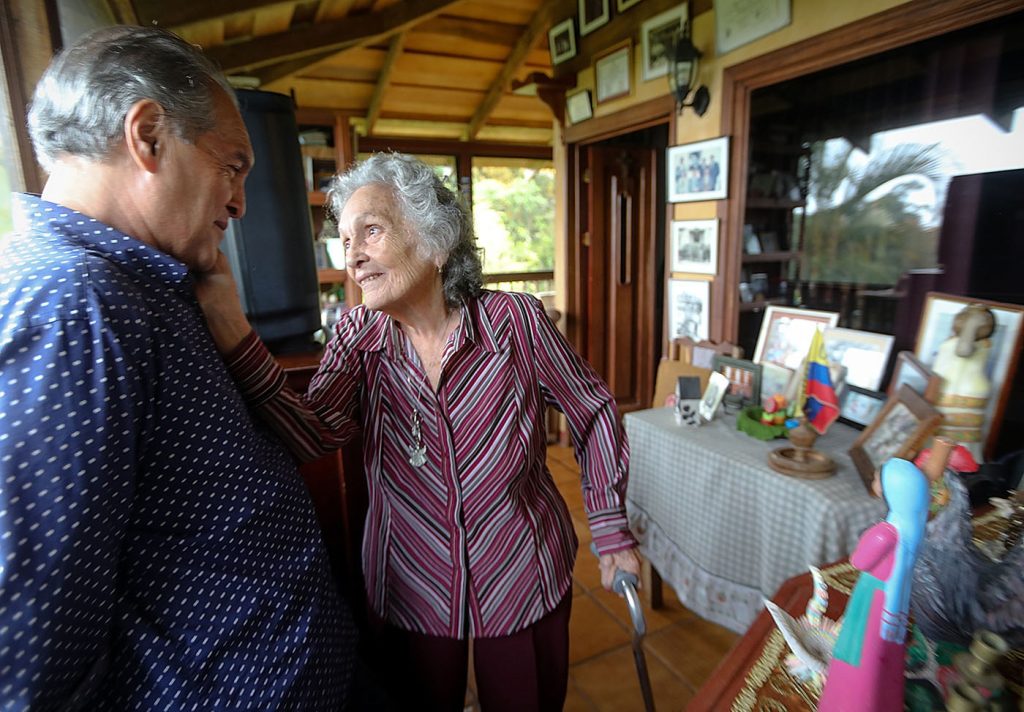

I ask him about his biggest fear: “That I’ll go crazy. That I won’t be able to do what she needs.” He says that the mere idea of not being able to carry the load, of having to navigate the rocky road ahead of him almost without help, fills him with anguish.
“I can’t find a way out,” he laments as he unconsciously scratches his hands and fingers, the skin raw, showing his level of anxiety and desperation.
Gustavo knows what awaits him and he is afraid, terrified: Alzheimer’s is merciless and has no cure. Little by little, María Isabel will continue to disappear, and in her place there will be only an empty and frightened shell. Gustavo already lived through this ordeal when his father fell ill. Today, he just wants to give his mom quality of life, and ensure that she can feel unconditional love until her last day. He knows the price of his decision. Even so, he assumes the choice with determination, love and pride.
With a tired voice, Gustavo remembers, “When my father died, everyone cried. I’m not going to say that I didn’t cry, too. But I didn’t cry with remorse.
“There will come a time when there will be a feeling of freedom, and at the same time that damn emptiness that forces you to say: what now?”
Although he doesn’t know exactly what the future will bring, he is sure of two things: first, since Alzheimer’s is a disease with a large genetic component, the chances of suffering from the disease are enormous. And second, he already knows that when his mother is gone, he is going to cut himself off from the world completely.
He has it all planned out. He bought a small camper just big enough for a mattress and a few shelves to store his essentials. With patience and enthusiasm, he has been fixing the small mobile home that will one day attach to his car. Without a fixed destination, he will travel the beaches and mountains of our country to finally live in absolute freedom, far from the land of oblivion.
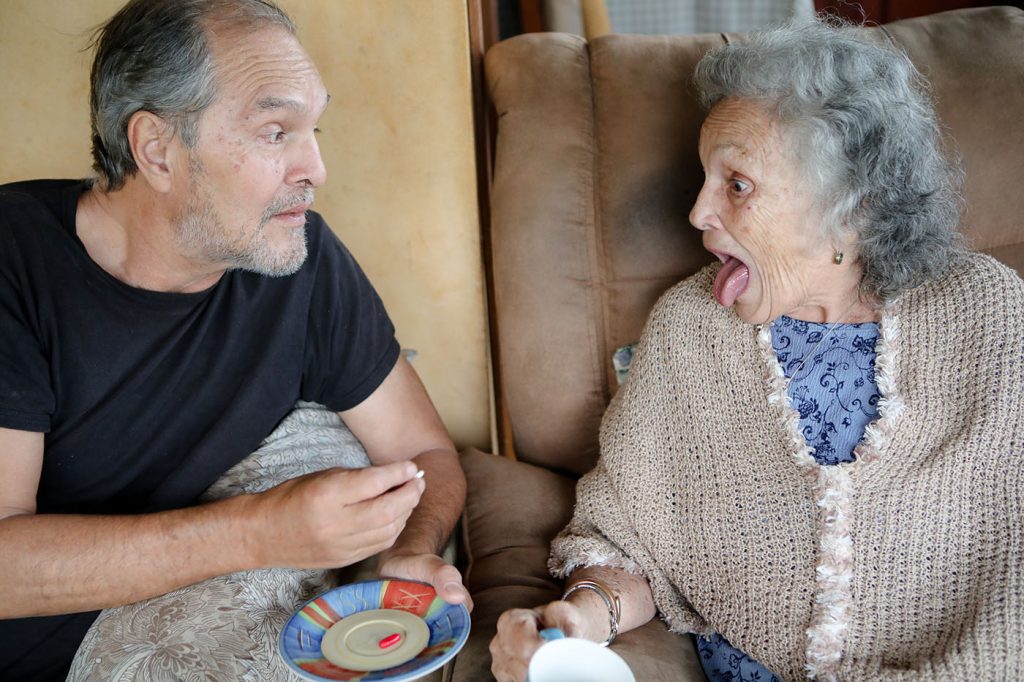
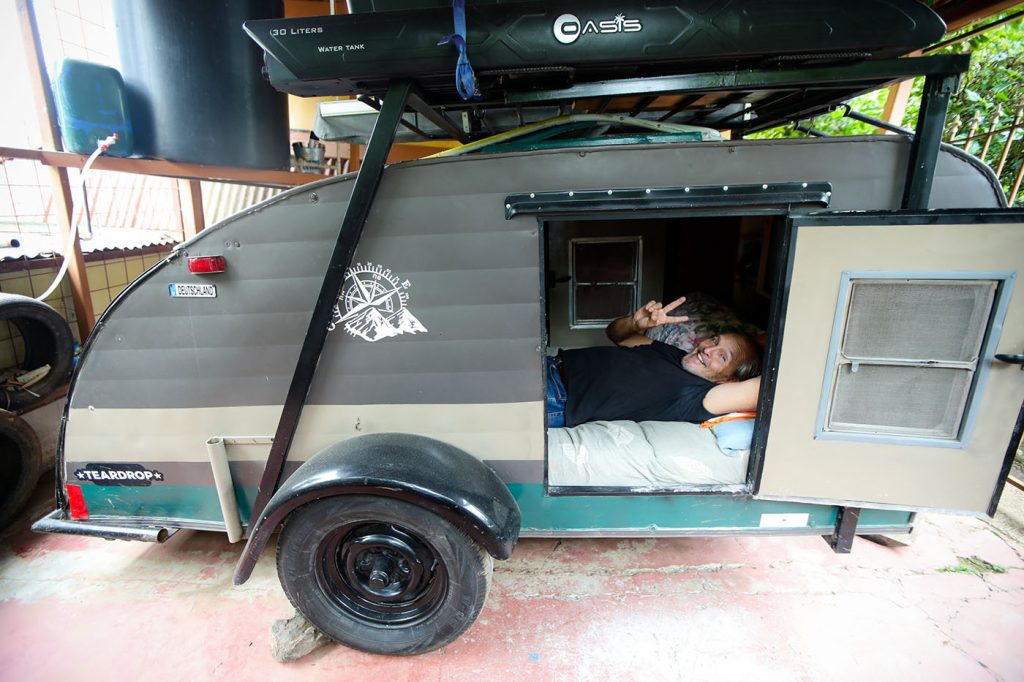
Our October 2022 edition, “Las Titas,” explores the realities of caregiving for older adults in Costa Rica: how they do their jobs, what challenges they face, and who is working to support them. With the support of the Yamuni Tabush Foundation, we have also hired five photojournalists, all Costa Rican women and mothers, who have spread out across the country to capture a day in the life of older women and men who are caregivers. Gloria Calderón Bejarano is one of the five photojournalists. Explore the edition here.


